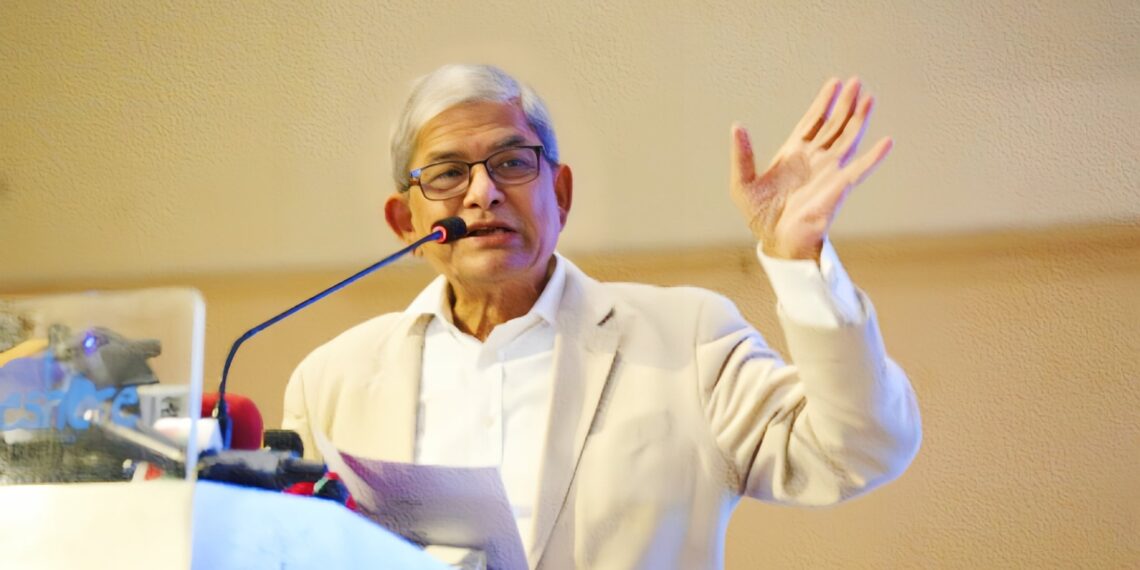Dhaka: Bangladesh Nationalist Party (BNP) Secretary General Mirza Fakhrul Islam Alamgir alleged that efforts are being made to erase the memory of the country’s 1971 Liberation War, warning that such moves threaten the very spirit of the nation.
Addressing an event in the capital, Alamgir said, “The Liberation War is inseparable from our identity. Yet, there are covert attempts to make us forget those sacrifices. Those who once sided with the enemies are now speaking the loudest.”
His remarks appeared to be a veiled reference to Jamaat-e-Islami, the fundamentalist group that opposed Bangladesh’s independence from Pakistan in 1971.
The BNP leader reiterated that citizens must remain vigilant against any attempt to undermine the country’s founding ideals.
“If we allow extremism to spread, Bangladesh’s existence will be at stake,” he said, noting a “rising tide of fundamentalism” that, according to him, poses a grave danger to national unity.
Alamgir’s warning comes amid internal turbulence within the BNP. Two days earlier, the party suspended veteran leader and Liberation War fighter Fazlur Rahman for three months over remarks that allegedly hurt religious sentiments and violated party policy.
Rahman, who played a key role in resisting anti-Liberation forces during and after last year’s violent movement that toppled Sheikh Hasina’s Awami League government, had recently criticised the resurgence of such elements in national politics.
In its suspension notice, the BNP said no harsh measures were taken against Rahman “in view of his historic contribution” but barred him from all organisational posts during the suspension period.
The party also cautioned him against making statements on television or social media that could damage BNP’s image or spark religious sensitivities.
Rahman, in a four-page response, denied acting against the party and defended his comments, saying he only called Jamaat “dark forces” for conspiring against the Liberation War and the July Uprising.
Despite his clarification, BNP’s top leadership, including acting chairman Tarique Rahman—self-exiled in London since 2008—decided to proceed with the suspension.
ALSO READ: Bihar on high alert after intelligence flags JeM infiltration via Nepal border
Speaking on the political climate, Alamgir accused the current interim government of presiding over “rampant corruption,” claiming that no official process, from government offices to courts, is free from malpractice.
He also expressed frustration over the outcome of last year’s protests, which he said failed to bring about the hoped-for political transformation.
“What’s worse, political leaders themselves are now trapped in this failure, deepening the crisis,” Alamgir said.
The BNP leader admitted that for the first time in his political career, he senses “a shadow of despair,” even as he pledged to keep fighting for the values born out of the 1971 Liberation War.















